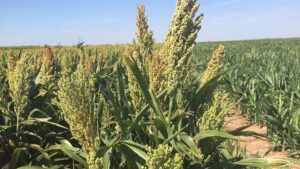Industry News is geared to seed professionals and delivers the people, industry, business and product news you need to know. Submissions are welcome. Email us at·news@issuesink.com.
People News
Wageningen University, located in the Netherlands, has appointed Leo Marcelis as chairholder of horticulture and plant-product physiology. Until recently, Marcelis was professor by special appointment of crop production in low-energy greenhouses at Wageningen University and team leader at Wageningen UR Greenhouse Horticulture. In his new position, Marcelis will be engaged in horticultural production and physiology.
Incotec Field Crops North America, a division of Incotec, a worldwide leader in coatings and seed technology, has hired Terry Meyer as integrated product research manager to lead product development efforts at the company’s facility in Oxford, Ind. Meyer is a veteran of the seed industry with over two decades of experience in biotechnology, with project leadership in various functions from discovery through commercial development. He has co-authored numerous scientific publications and has 48 issued patents. Meyer will be responsible for building a strong research organization focused on bringing new technologies and products to the market.
Product News
A.T. Ferrell Company, known for the Clipper seed-cleaning brand, has added perforated metal screen production to its facility in Bluffton, Ind. In addition to punching screens in-house for its entire Clipper machinery line, the new screen production capabilities also allow customers to purchase a growing supply of competitor screens. “We’ve listened to our customers and they are looking for high-quality, American-made screens that carry the trusted Clipper name,” says Steve Stuller, president of A.T. Ferrell Company. “This is an exciting venture for us and a new chapter to help our customers gain access to screens they can rely on.” A.T. Ferrell plans to grow this division over the coming years.
BASF plans to expand its services and initiatives for growers and agricultural professionals worldwide. The investment will drive the development of unique, integrated IT tools that will support growers to make agronomic decisions, manage their business operations and better connect to the global agricultural community. The company plans to launch the first integrated tools in key agricultural markets around the world by the end of 2014 with additional markets and tools to follow. BASF will also launch new tools for field scouting and field documentation to support on-farm decision-making and reporting. As part of this investment, BASF will establish strategic partnerships with ag service and data providers, with particular focus on areas in data management, predictive analytics and information processing.
Business News
Syngenta has signed an agreement to sell its Dulcinea Farms business to Pacific Trellis Fruit LLC, a U.S.-based international grower and marketer of fresh produce. Based in California, Dulcinea was formed in 2004 initially as a vehicle for branding proprietary mini-watermelon and specialty melon genetics directly to consumers through national food retail chains. Syngenta and Pacific Trellis have also signed a long-term supply agreement whereby Syngenta will continue to provide Dulcinea with mini-watermelon and specialty melon seed varieties. The deal was expected to close by the end of 2013.
Sakata Seed Corporation has signed an agreement to acquire a stake in Genetwister Technologies B.V. Sakata is a world leader in breeding and producing vegetable and ornamental seed and vegetative cuttings. With this alliance, Sakata will boost its marker-assisted breeding endeavors with the most advanced genome sequencing and gene analysis techniques in order to accelerate the development of novel flower and vegetable varieties.
Ikasido Global Group B.V. is pleased to announce its recent launch onto the global stage. Ikasido aims to develop the international horticulture sector and supply its customers throughout the globe with high-quality plant genetic materials of various crops. The primary objective of Ikasido is to build a network of independent breeders and breeding companies to provide a platform for marketing and distribution of their genetics. Ikasido offers a wide assortment of genetics of flower and bedding plants and vegetables for open-field and greenhouse cultures.
Syngenta has invested more than US$3 million to better meet the needs of vegetable growers with an expansion of its seed processing facility in Pasco, Wash. The improvements, which will be complete for the 2014 season, include an expanded seed quality testing lab and an in-house seed treatment facility. The new quality lab improves turn time and accuracy for vegetable seed testing and the investment in seed application equipment enables Syngenta to broaden the use of its FarMore Technology platform, an on-seed application of separately registered seed protection products and proprietary application technologies, on different vegetable varieties. The Pasco facility employs state-of-the-art technology, including advanced sweet corn dryers and a conditioned warehouse, to provide customers with the highest quality vegetable seeds.
Verdeca, a soybean technology joint venture between Bioceres and Arcadia Biosciences, and GDM Seeds, a leading South American soybean seed company, have announced an agreement to develop and commercialize new soybean varieties based on Verdeca’s HB4 stress-tolerance technology. HB4 technology enables plants to adapt to multiple stresses and achieve higher yields. The agreement and collaboration leverage Verdeca’s technology and regulatory expertise, and GDM Seeds’ soybean germplasm and breeding capabilities. Under the collaboration, GDM Seeds will develop and commercialize proprietary soybean varieties incorporating HB4 stress-tolerance technology. Integration of the HB4 trait into the GDM Seeds soybean breeding program has been in progress under an earlier research agreement.
John Deere and BASF plan to jointly develop a suite of integrated precision farming and farm management solutions for improved execution in the field. These tools, developed together with growers, will provide enhanced field scouting services and tailored agronomic advice. These will help growers turn data into management decisions more efficiently. As part of the agreement, BASF will offer a new service for field scouting and agronomic decision support. John Deere will provide a new application for sprayer setup as well as integration of field data via its collaborative farm management portal MyJohnDeere.com, which will enable growers to better manage their farm operations. The goal is to launch the first joint integrated tools by the end of 2014 in key agricultural markets with additional markets to follow.
Industry News
After testing samples taken from rice fields across the state, Mississippi State University scientists found that seed treatments are effective in managing the crop’s most troublesome insect pests. “We’ve been evaluating seed treatments for about five years,” said Jeff Gore, entomologist with the Mississippi Agricultural and Forestry Experiment Station and MSU Extension Service. “Our research has shown that rice grown with a seed treatment typically yields from eight to 12 bushels more per acre than untreated rice.” Gore said seed treatments are effective in both conventional rice varieties and hybrids. “Seed treatments provide good control against a whole complex of other rice pests and get the plants off to a good, healthy start.”
Transgene spreading is a major concern in cultivating genetically modified corn. Cross-pollination may cause the spread of transgenes from GM cornfields to conventional fields. New biological confinement technologies are highly desired to mitigate transgene spreading in addition to physical separation and isolation methods. In a study conducted by scientists from Zhejiang University in Hangzhou, China, researchers developed a built-in containment method to mitigate transgene spreading in corn. The GM corn plants that were generated were found to be sensitive to nicosulfuron but resistant to glyphosate, which is exactly the opposite of conventional corn. This study suggests that this built-in containment method for controlling the spread of corn transgenes is effective and easy to implement.
Cibus Global Ltd., a cutting-edge technology firm and leader in the area of gene editing has acquired the remaining interest in Nucelis Inc. Nucelis will now become an independent operating unit of Cibus, which employs approximately 100 people worldwide, and also includes Cibus US LLC and Cibus Europe B.V. Nucelis CEO and president Sean O’Connor will continue to lead the Nucelis operating unit as its CEO and will join the Cibus executive management team as a senior vice president of Cibus. Nucelis will continue to be the exclusive licensee to Cibus’ Rapid Trait Development System technology in its key product areas of fermentation and bio-based chemicals.
The Seed Association of the Americas understands the importance of UPOV ‘91, and is extremely pleased to see that the Government of Canada has also recognized the importance of the global standard with the introduction of the Canadian Agricultural Growth Act: Bill C-18, which contains important amendments to Canada’s plant breeders’ rights legislation. “Canada is recognized as a leader in the global seed industry. The work that Canada has done to build support for UPOV ‘91 with government, farmers and industry creates a win/win scenario for protecting plant breeders’ rights,” said Diego Risso, secretary-general of the Seed Association of the Americas. “To be very clear, this is critical to ensure the required investment in plant breeding to improve yield and quality and ensure that Canadian farmers have the best possible opportunities and access to the latest technology. Support for UPOV ‘91 is the first step in this process. Its implementation will require all stakeholders to respect and adhere to these important regulations.”
The American Seed Trade Association’s First the Seed Foundation has announced it is the recipient of a significant donation by Peterson Genetics Inc. to be used to build the core curriculum program related to seed production for middle school students. The First the Seed Foundation is a not-for-profit organization established in 2008 to inform today’s consumers and tomorrow’s workforce about the importance of the seed industry. “The mission of the First the Seed Foundation is to conduct education, outreach and communication on the value of crops and food produced from seed,” says Mike Peterson, president and owner of Peterson Genetics. “That is exactly why supporting the foundation through a donation to be used for the curriculum program seemed like a great fit. It’s an opportunity for us to teach how broad an impact seed-derived products have on our daily lives.”
Purdue University researchers have confirmed the long-held hypothesis that sorghum deters insects from feeding on its leaves by releasing hydrogen cyanide. Mitch Tuinstra and Brian Dilkes found that insects preferred the leaves of a mutant sorghum plant with an abnormally slow release of cyanide to those of a wild-type sorghum plant with a normal cyanide-release rate. Fall armyworms fed on the leaves of the mutant sorghum even though the leaves contained similar levels of dhurrin—the chemical compound responsible for synthesizing hydrogen cyanide—as those in normal sorghum plants. “This study separates for the first time the accumulation of dhurrin from the release of hydrogen cyanide,” said Dilkes, assistant professor of horticulture and landscape architecture. Tuinstra and Dilkes identified a sorghum mutant with an exceptionally slow cyanide-release rate. They located the gene responsible for the defect by using next-generation sequencing. The sequencing technique allowed Tuinstra and Dilkes to identify the single nucleotide within the sorghum genome of 790 million base pairs that slowed the release of cyanide in the mutant plant. After cloning the mutant, the researchers tested insect feeding preference by releasing fall armyworms onto mutant and normal sorghum plants. Though both types of sorghum contained normal levels of dhurrin, the insects avoided the normal sorghum plants, settling and feeding on the leaves of the mutant sorghum instead. While the mutant contains the compounds necessary to generate cyanide, it cannot release cyanide quickly enough to ward off pests, Tuinstra said.











